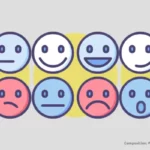
If you look back trying to remember aspects of your childhood, when you were less than 3 years old, you will probably find a huge gap. The few memories you have almost always come from stories that your parents have told you, but they are not real memories but implanted ones. This phenomenon is known as “infantile amnesia” and almost all of us suffer from it: we lose our first autobiographical memories.
It is an enigma for Psychology because 3-year-old children are able to remember previous events but from some point on, these memories begin to fade until they are completely lost. Now researchers at Emory University have tried to trace these memories.
How did they do it?
These psychologists recorded mothers as they talked to their 3-year-old children about six past events, such as a visit to the zoo or the first day they went to kindergarten. The researchers then contacted these families again when the children were 5, 6, 7, 8, and 9 years old. In this way they were able to give personalized follow-up to the children’s six memories.
This is how they discovered an interesting paradox: between 5 and 7 years old, children remember more than 60% of the events they had experienced before they were 3 years old. However, the memory of these events was immature; That is, it contained non-objective evaluations and few mentions of time and place. However, between 8 and 9 years old the children remembered less than 40% of the events but those that had been fixed in their memory were more solid.
Infantile amnesia and retrieval forgetting
Experimenters believe memory and the consequent process of forgetting autobiographical facts begin to take shape from the age of 7. According to these psychologists, the cause would be forgetting induced by recovery.
For example, we often forget things, like where we left our car keys or the name of a movie. However, forgetting is not always a negative thing; sometimes, when we strive to remember something, we have to inhibit or prevent the recovery of alternatives that in reality only compete to enter consciousness and do not provide us with useful information. Therefore, when we try to recover a specific piece of information from memory, this implies that we are inhibiting others and that we can relegate them to oblivion.
This mechanism could explain, at least in part, the loss of biographical memories. Apparently, when we start going forward in time, some memories become fuzzy, which is perfectly understandable, and in our effort to seek more details about some situations, what we do is erase other facts.
Obviously, this is only part of the explanation. It is also stated that we lose childhood memories because they are stored primarily through images since before the age of three we do not use language much. However, when the language becomes dominant, those first memories could be at a serious disadvantage.
Source:
Bauer, PJ & Larkina, M. (2013) The onset of childhood amnesia in childhood: A prospective investigation of the course and determinants of forgetting of early-life events. Memory; 22(8): 907-924.




Leave a Reply